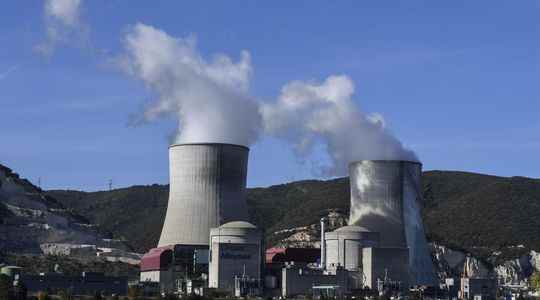Energy prices continue to soar in Europe. Electricity, in particular, reached €753.98 per megawatt hour (MWh) in France, €664.79/MWh in Germany and €650/MWh in the Netherlands at 11 a.m. on Tuesday August 30, according to data compiled on scholarships by TEN, responsible for the public electricity transmission network. More than triple the prices posted on the eve of the Russian invasion of Ukraine. The wholesale price of electricity in France for 2023 even exceeded 1,000 euros per MwH on Friday. It was 85 euros a year ago.
“We must definitively stop the madness that is taking place on the energy markets. And this can only be possible thanks to a European solution, called on Austrian Chancellor Karl Nehammer in an address to his partners. We cannot let Putin determines the price of electricity in Europe every day.” Indeed, one of the reasons for this outbreak remains the voluntary reduction gas exports to the continent from Russia.
The appeal was heard by the Czech Republic, which holds the Presidency of the Council of the European Union for six months. The country announced through its Minister of Industry, Jozef Sikela, the forthcoming holding of an extraordinary meeting of energy ministers, with the possibility of copying a model which until now has made it possible to drastically limit the rise electricity prices in the Iberian Peninsula.
Iberian exception
At the beginning of April, the Portuguese and Spanish rulers negotiated and obtained from the European Commission a one-year derogation from the rules in force on the EU electricity market. This is normally based on the principle of “marginal cost”, implying taking as a reference the price of the last production capacity used to balance the network, ie currently that of the gas-fired power stations. “The European electricity market is also organized like this to make profitable the investment in gas power stations which operate infrequently, but which we need to avoid blackouts in winter”, also noted Thomas Pellerin-Carlin , director of the Energy Center of the Jacques Delors Institute, with West France, last fall. However, the two countries, which have little energy exchange with the rest of the continent, produce their energy mainly from renewable sources, which are cheaper to use than nuclear power, coal, and finally gas. .
The derogatory regime thus enables the two countries to stem the increase in electricity. For 12 months, it guarantees Spain and Portugal a gas price involved in electricity production initially capped at 40 euros per MWH, before reaching 50 euros by the end of the year. . Nearly six times lower than current peaks.
“That consumers and industry gain on their bills”
Despite these specificities specific to Spain and Portugal, France, Italy and Austria also aspire to an in-depth reform of electricity rules. The subject of decoupling “will be on the agenda”, promised the Austrian Chancellor, who said he had raised the subject upstream with his German counterpart Olaf Scholz and with Petr Fiala.
Long hostile to reform, Brussels and Berlin have joined their partners and now support the idea of loosening the noose. “The aim is that consumers as well as industry gain more on their electricity bills because renewable energy is produced so cheaply,” the German government said. “The soaring electricity prices clearly show the limits of the current functioning of the market. This had been designed in a very different context”, finally acknowledged the President of the European Commission, Ursula von der Leyen, during a a conference in Bled, Slovenia.
It remains to be seen whether the Iberian model will be copied purely and simply. The temptation is great, given the first results that are being felt in the Iberian Peninsula. In August, inflation notably slowed down in Spain, returning to 10.4% over one year (-0.4% compared to July).
